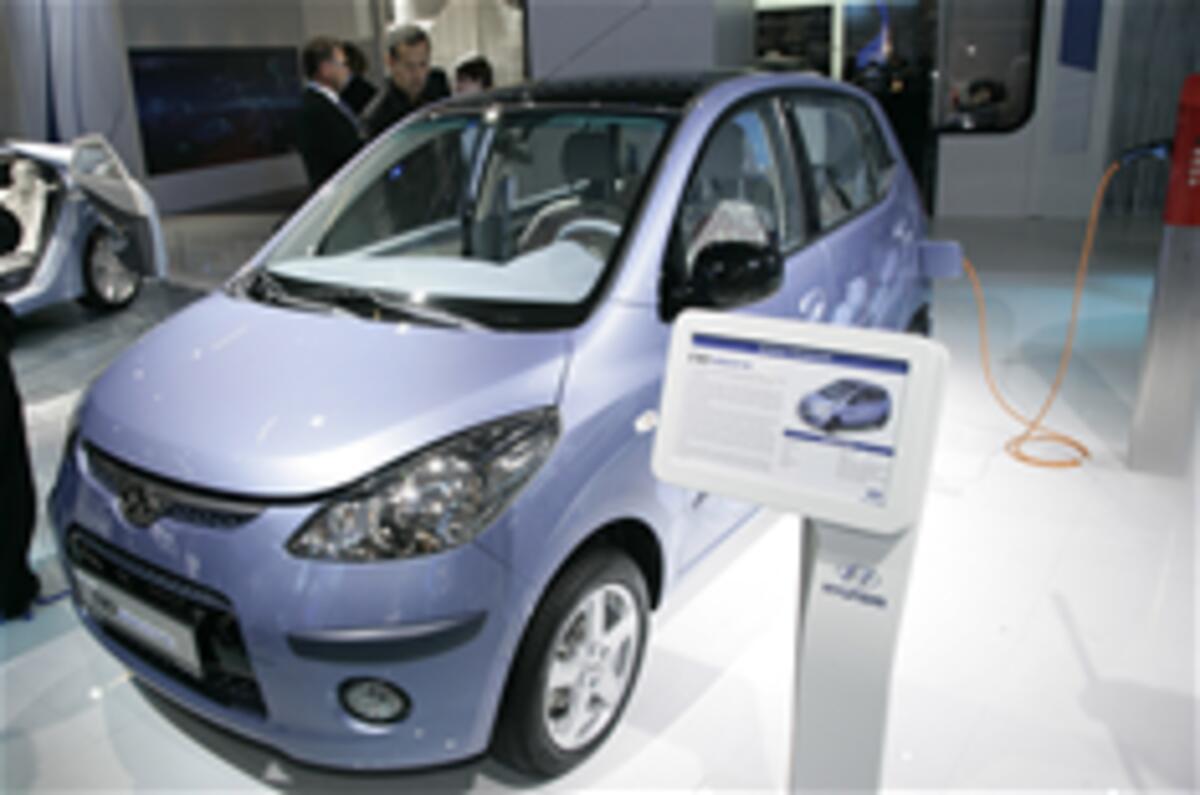Hyundai has launched an all-electric version of its i10 city car at the Frankfurt motor show.
The zero-emission Hyundai i10 Electric will be available to lease in the firm’s native Korea from the second half of 2010 before going into full production in 2012.
See the Hyundai i10 Electric picture galleryHyundai ix-metro concept launched
The i10 Electric marks a change in strategy for Hyundai, which has previously distanced itself from producing all-electric vehicles in favour of hybrid and hydrogen fuel-cell technology.
“We were going to do hybrid cars as a bridge before hydrogen technology really took off,” said a source. “But we recognise there is a future now in electric technology.”
Another reason for the sudden launch of the electric i10, which has been developed in “months” according to one executive, is the introduction of tax incentives for electric cars in Seoul. Previously there were no fiscal stimuli for such cars but this has now changed and Hyundai is keen to take advantage of this.
The i10 Electric’s power comes from a 49kw electric motor and a 16kw lithium-ion polymer battery, which has been developed with LG. Lithium-ion polymer batteries are lighter and more durable than more common nickel hydride batteries, offering a 30 per cent weight drop, 40 per cent volume drop and 12 per cent efficiency boost. The batteries and motor are kept cool by an electric water pump.
One of the i10 electric’s main selling points is its fast charge system, which can charge up the battery to 85 per cent capacity in 15 minutes from a 413V power source. A full 100 per cent charge takes up to five hours.
The i10 Electric can achieve 100 miles on a single charge. Its top speed is 80mph and 0-62mph occurs in 15 secs. The electric motor produces 155lb ft of torque.
The car is likely to be available on a lease only basis for the foreseeable future due to the large costs of the batteries. The unit used in the i10 electric costs 10,000 euro (£8730), which is more than the price of a basic i10.
However, lithium-ion polymer batteries last longer and hold their charge better than other battery types so should need replacing less often than in other electric cars. They are also easier to dispose of due to their smaller weight and size.
Mark Tisshaw
Twitter - follow autocar.co.ukSee all the latest Hyundai i10 reviews, news and video




Add your comment